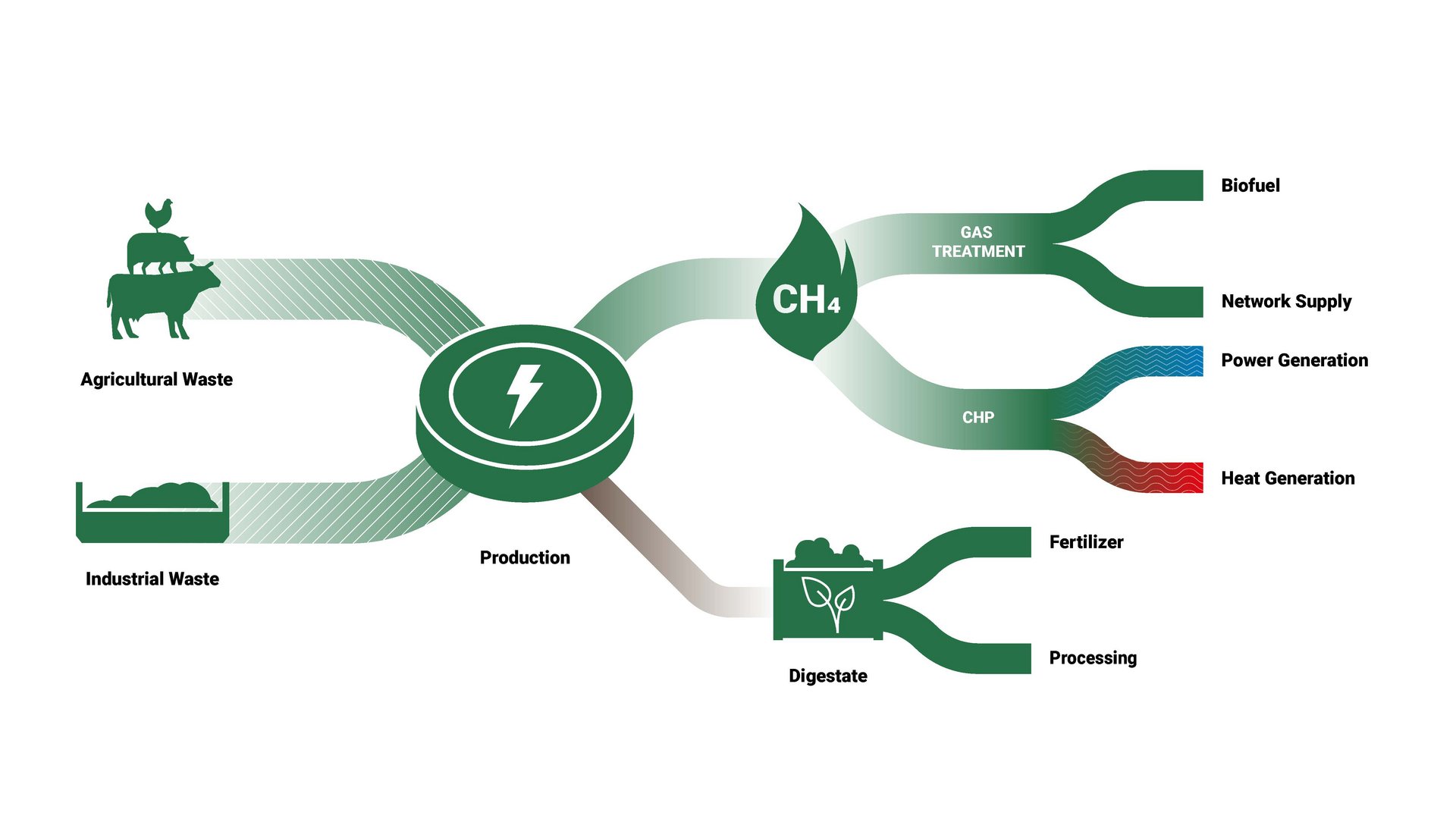About us
Biogas
How we produce biogas.
Biogas is produced in a digester using the 4- phase process of biochemical, anaerobic digestion: (1) hydrolysis, (2) acidogenesis, (3) acetogenesis and (4) methanogenesis. Carbohydrates, fats and proteins are transformed into methane (50-70%) and carbon dioxide (30-50%). Fermentation is complete when the substrate has passed through all the stages. Each of these stages feature a specific physiological microbial population.
The key process parameters are temperature and the time spent by the substrate in the fermenter (hydraulic retention time). Most agricultural biogas plants operate at a mesophilic temperature (35-42°C – 95 to 108F). The residence time depends on the feedstock type and varies between 20 and 70 days.
Anaerobic digestion can be used to transform almost all types of organic matter into biogas. The only exceptions are plant materials, with a high lignin or cellulose content (e.g. wood). Organic waste (sewage sludge, manure, municipal, and industrial waste), agricultural by-products, and energy crops are used as raw materials in biogas plants. The various plants have different energy contents and yields per hectare. The wide range of potential input materials reduces the need for the monocultures demanded by other biomass technologies (biodiesel and bioethanol).
Benefits of biogas.
Biogas can be used in a myriad of ways!
- Co-generation unit produces electricity or heat
- Constant biogas production and storage
- Covering both basic power demand as well as peak loads
- Decentralized heat and power generation
- Electricity can be fed into the grid in a decentralized and controlled manner, even under unfavorable network conditions
